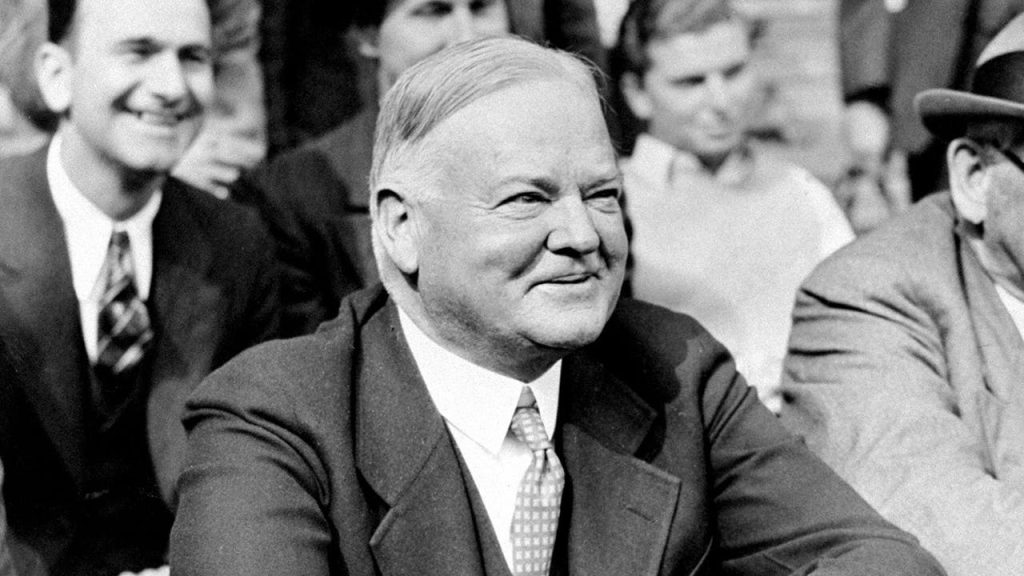On October 22, 1928, Herbert Hoover, the Republican presidential nominee, delivered a speech at Madison Square Garden in New York where he introduced the term “rugged individualism” to amplify his philosophy of personal freedom and volunteerism over government intervention. Hoover, who served as the 31st president of the United States from 1929 to 1933, was born in Iowa in 1874 and grew up in Oregon. He graduated as a mining engineer from Stanford University and believed that rugged individualism would bring prosperity to Americans, rooted in decentralized and limited government working cooperatively with private businesses and individuals for social and economic progress.
During his 1928 speech in New York City, Hoover emphasized the importance of maintaining the American system, saying that they could continue solving great problems without abandoning their values. He credited Republican policies for the economic prosperity of the 1920s and believed that the key to economic success was full employment, ensuring that every family could share in the nation’s prosperity. Hoover’s victory over Alfred Smith in the 1928 election saw him winning 83.6% of the electoral college and 58.2% of the popular vote, as reported by The American Presidency Project.
When Hoover took office as U.S. president in 1929, the stock market was experiencing unprecedented growth, but it soon crashed in October 1929, leading to the Great Depression. Despite summoning business leaders to secure promises to maintain wages and stimulate employment with construction projects, the economy continued to spiral downward for the next decade, leading to widespread economic hardship. Though Hoover’s efforts were proactive, they were ultimately insufficient to prevent the widespread suffering that characterized the Great Depression from 1929 to 1941.
After his presidency, Hoover dedicated his time to public service and social causes such as the Boys Clubs of America and the Hoover Institution, founded as a research center on the Stanford campus. He also authored over 40 books during his post-presidency years. Franklin D. Roosevelt defeated Hoover in the 1932 election, marking a significant shift in the country’s political landscape during the Great Depression. Hoover continued his philanthropic efforts and passed away on October 20, 1964, at the age of 90, being laid to rest in his birthplace of Iowa.
The consequences of the Great Depression, which lasted from 1929 to 1941, had a profound impact on the United States and the modern industrial economy, leading to economic hardship and social upheaval for over a decade. The election of Franklin D. Roosevelt in 1932 represented a significant shift in the political alignment of the country during this tumultuous period. Hoover’s legacy includes his philosophy of rugged individualism and his efforts to address the economic challenges of his time, as well as his ongoing dedication to public service and social causes after his presidency.













